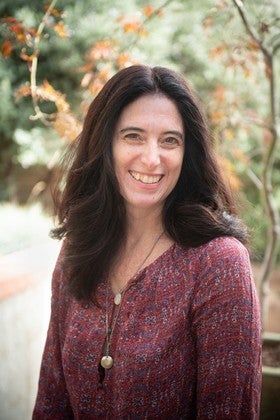
The War Within: Dismantling Our Inner Hierarchy
Chaos and conflict are everywhere: Division, righteousness, what we deem right and wrong, the things we prefer and the things we abhor. We witness war and atrocities every time we tune into the news. Those of us desperately wishing for peace on the planet can easily feel defeated - the problems seem insurmountable at times, leaving us feeling disempowered.
But we are yogis, practicing on the planet right now. Some are geared toward activism and service to others, and are gifted at stepping up onto the front lines of these big problems to lend a hand. Others of us are teachers and healers, and some are gifted in the subtle interior realms of being and consciousness. Some people can participate at all of these levels.
If you practice yoga, you likely have some ability to listen inside yourself, so you can quickly see that the wars we see in the world are also happening in our own minds. The Bhagavad Gita is one of the major yogic texts, and it’s no accident that it takes place on a battlefield. It uses war as the setting to impart the teachings of yoga, because the early yogis knew that this inner battle was the one we are all facing on a daily basis.
The problem with war is that it assumes a winner and a loser, a good side and a bad side, and so many of us pit the darkness and light against one another. These are polarities, structures that make up opposites, and are indicative of the duality that exists in this reality. We can’t escape the opposites when we look at our world - it’s part of the essential construct of the planet and literally defines the “fall from grace”, the illusion of separation that set us humans up for this crazy ride.
Joseph Campbell writes in his book The Power of Myth, “All the gods, all the Heavens, all the Hells are within you.” What we see happening in the world is also happening within us. And we all have judgements and assessments about which qualities we prefer and which we wish weren’t there. We categorize the emotions and thoughts into the categories of “good and evil”, some to more degrees than others. So naturally, we elevate, nurture, and highlight the things about us that we deem acceptable, and we suppress, ignore, or admonish the things we deem unacceptable. We pick a side. There’s nothing wrong with this tendency — it helps to maintain a sense of moral order and on a superficial level helps hold this dualistic world together.
But at some point, we will have to reckon with the voices inside that we haven’t welcomed in—and if we don’t they will create chaos, either internally through health challenges, anxiety, depression, or other afflictions, or externally through conflict, judgment, moral superiority, or behavioral expressions of fear or anger.
As soon as an internal hierarchy is established, parts of us begin to dominate and others are asked to submit. This sets up the perpetrator-victim cycle that many psychological threads discuss: good/bad, higher/lower, better than/less than.
What if we were to find a level of acceptance, compassion, and understanding of these “darker” energies? What if we could reframe our relationship with the parts of life which appear to be destructive or even evil? Our minds love categories and structure and linear order. But life is extraordinarily non-linear. Nature is full of destruction and creation, death and new life. But it operates with an underlying order that we cannot always see. In the best of scenarios, there is balance in that order. But even when there is not, there is no assessment of good or bad, better or worse. The planet just is. The annoying slugs that eat our vegetables serve a purpose, even if our minds think they don’t. And so do the more difficult feelings that bubble up inside our bodies. Grief cracks open our hearts and leads us to love. Anger is the fire of transformation that hopefully leads to authentic action. Fear signals to help keep us alive. We suffer because we do not like to feel the chaotic nature of life inside of us - those “dark” emotions take us on an uncomfortable ride when we let them flow through us. Our sweet ordered minds try to help us categorize them and push them down so we can stay safely tucked in our comfort zone, and deem them as less-than or sinful or bad.
But what ends up happening is that the energy that is meant to flow easily through us turns back upon itself and creates blocks, tension, pain, anxiety, shame, depression, or a whole host of other things that keep us suffering. And we either keep it in there or it expresses in explosive or harmful ways. We make a snide remark, or scream at our partner, or judge and blame someone who doesn’t see the world in the same way. We begin to hate anything that makes us feel these emotions deeply. We spend a lot of time leaning into the polarity of “good” and in doing so, demonize and ignore the opposite. We forget that all of these components make up life. The actual energies and emotions are not “good or evil”, but it is the denial and demonization of those energies that create violence, inside and out.
I urge you, as a yogi, to begin to know which parts inside of you that you haven’t made peace with. (Hint: it may be closely related to things you judge out in the world.) Then try to welcome the sensation of those energies when they arise. Witness the anger, the hatred, the judgment, the shame, the blame, the deep grief, the fear. Let it be felt as deeply as you can allow. And then let it express - through movement, through sound, through journaling, or art. Remember that life is the highest of highs and the lowest of lows and everything in between. And it moves through you in every moment. It’s our job as humans to try to allow it - all of it - to do so.
Comments
No comments yet. Be the first!








You need to be a subscriber to post a comment.
Please Log In or Create an Account to start your free trial.